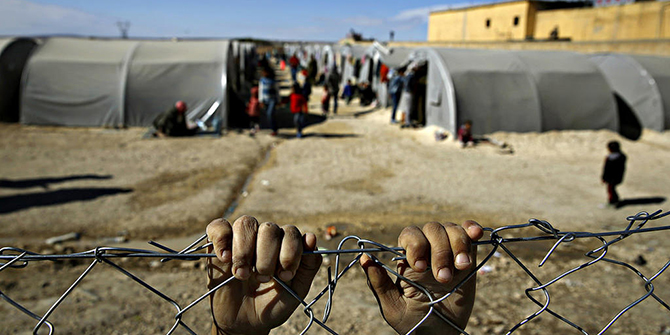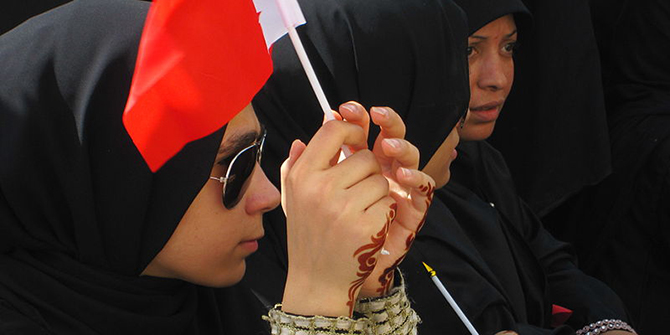by Marc Lynch

It is sometimes hard to remember that the Arab uprisings of 2010-11 promised the possibility of meaningful political change. The unprecedented outburst of popular mobilization overthrew some regimes and unsettled most of the others. Those hopes have long since come crashing down. Egypt’s transition ended in a military coup, bloody repression, and a neo-authoritarianism legitimated through xenophobic populism. Tunisia’s survived, barely. Libya, Yemen and Syria have suffered near-complete political collapse, polarization, and civil war. Almost every regime has become more intolerant and more repressive. Violent, extremist Islamist movements such as the Islamic State group have surged in this chaotic atmosphere.
How should we understand the authoritarian resurgence in the aftermath of the Arab uprisings? In October 2014, Toby Dodge and I jointly convened a Project on Middle East Political Science (POMEPS)-London School of Economics workshop to dig more deeply into the causes, mechanisms, and drivers of what he called “The Arab Thermidor.” More than a dozen scholars looked deeply at specific sectors such as the military, police and intelligence services, different countries, and the broader regional environment. Some of the papers produced for that workshop have been published on the Monkey Cage, and all of them have today been released as “POMEPS Studies 11 The Arab Thermidor: The Resurgence of the Security State,” available as a free downloadable PDF. The papers in this collection offer a sharp, comprehensive and acute look at the resurgence and persistence of the Arab authoritarian state.
>> read the full memo on the Monkey Cage
Other available memos in the series
‘The Authoritarian Impulse vs. the Democratic Imperative: Political Learning as a Precondition for Sustainable Development in the Maghreb’, John P. Entelis, Fordham University
‘Elite Fragmentation and Securitization in Bahrain’, by Toby Matthiesen, University of Cambridge
‘Militaries, Civilians and the Crisis of the Arab State’, by Yezid Sayigh, Carnegie Middle East Center
‘Arab Transitions and the Old Elite’, by Ellis Goldberg, University of Washington
‘Explaining Democratic Divergence: Why Tunisia has Succeeded and Egypt has Failed’, Eva Bellin, Brandeis University
‘Is Libya a Proxy War?’, Frederic Wehrey, Carnegie Endowment for International Peace
‘Fiscal Politics of Enduring Authoritarianism’, Pete W. Moore, Case Western Reserve University
‘The Role of Militaries in the Arab Thermidor’, Robert Springborg, Sciences Po
‘Mass Politics and the Future of Authoritarian Governance in the Arab World’, Steven Heydemann, United States Institute of Peace
‘Security Dilemmas and the ‘Security State’ Question in Jordan’, Curtis R. Ryan, Appalachian State University
‘Authoritarian Populism and the Rise of the Security State in Iran’, Ali Ansari, University of St Andrews
‘A Historical Sociology Approach to Authoritarian Resilience in Post-Arab Uprising MENA’, Raymond Hinnebusch, University of St Andrews





